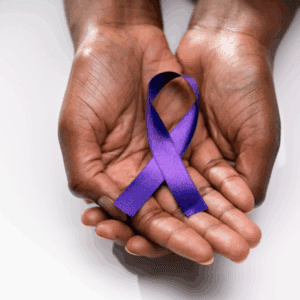Dr. Paul Oberstein provides an overview of the essential testing that every pancreatic cancer patient should undergo following a diagnosis. Dr. Oberstein also shares key questions patients should ask about their results.
Dr. Paul Oberstein is Section Chief of Gastrointestinal (GI) Oncology at NYU Langone and Assistant Director of the Pancreatic Cancer Center of NYU Langone’s Perlmutter Cancer Center. Learn more about Dr. Oberstein.
Related Resources
Transcript
Jamie Forward:
Dr. Oberstein, what tests should a patient undergo after being diagnosed with pancreatic cancer?
Dr. Paul Oberstein:
Yes. So, a lot of that will depend on how they were diagnosed, right? Meaning, what tests have already been done. It’s – it is absolutely essential for someone to have a biopsy of their cancer. Partly to document for sure that that’s what it is, but it’s also because there are many additional tests that we recommend being done on the biopsy that can help guide therapy. And I think we’ll talk more about some of them, but we do standard testing, including a test called mismatch repair proteins; there are other tests. I would ask the doctor about them.
But besides tests, on the original biopsy we recommend what is called molecular testing, which is deeper testing of the genetic mutations that are present in the tumor. And that’s really important, because it can inform therapy, it can guide therapy.
We also recommend for everyone who is diagnosed with pancreatic cancer, that they undergo what is called germline genetic testing. Which is testing not of the tumor, but of the person to see if they were born with any mutations that predispose them to this cancer. That’s very important both for their treatment, but also for their family, because sometimes this is the information that will be shared with the family that will help others. It’s also really important to get CAT scans done mostly to get a sense of where the cancer is at the time of diagnosis.
And there are many blood tests that are important, including something called tumor markers, which are very important for prognostic value. And then general blood tests to see how well the other parts of the body are working. It’s really going to have an impact on the decision for treatment.
Jamie Forward:
Sure.
Dr. Paul Oberstein:
So, a lot of tests.
Jamie Forward:
Yeah, it is. And what sort of questions should patients be asking about test results?
Dr. Paul Oberstein:
Yeah. So, the first and most important test results are the staging.
Where is the cancer? What does that mean based on the location? And what does that mean for the treatment plan? If a cancer is localized to the pancreas, then very often the goal is to give treatment, and surgery, and try to remove it. Sometimes radiation therapy – if a cancer has spread, surgery is usually not recommended, but there are exceptions. And so, I think it’s really important for a person to know where their cancer might be. The other blood tests that are really important is for a person to understand how the rest of their body is working.
Are they diabetic because of the cancer? Do they have liver inflammation or low blood counts? So, that’s important, and then these molecular tests, the tumor features are very important, right? So, very often a patient will be seeing multiple doctors. And carrying that information to other doctors or other providers is really important, so they don’t have to do it again, and they know what options are available for the patients.



